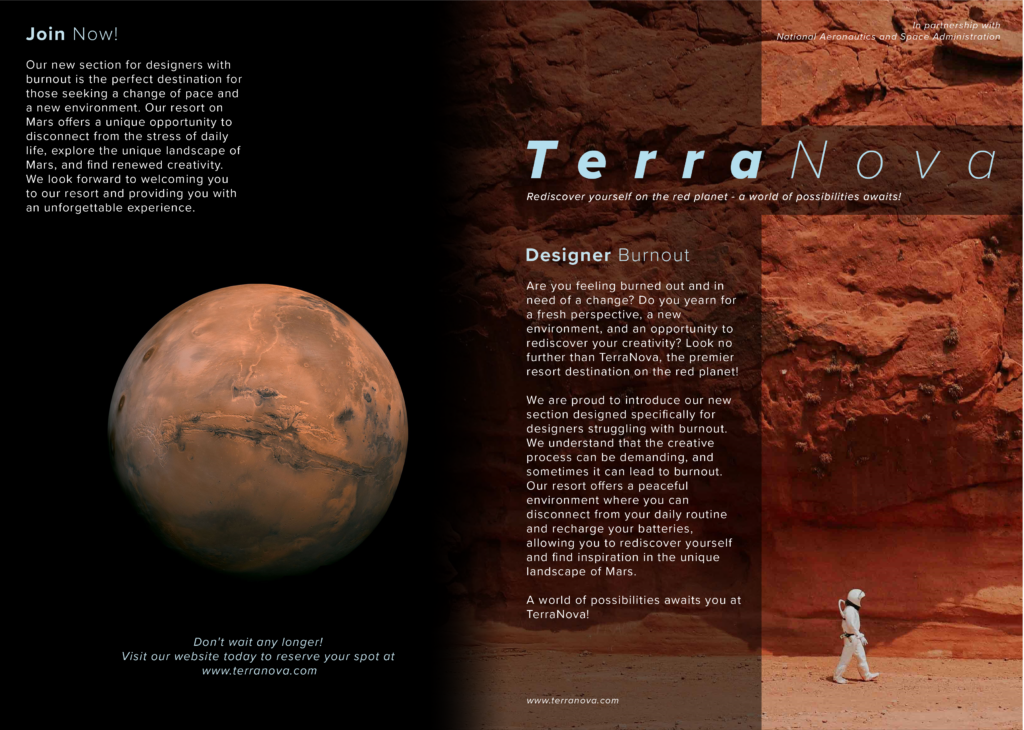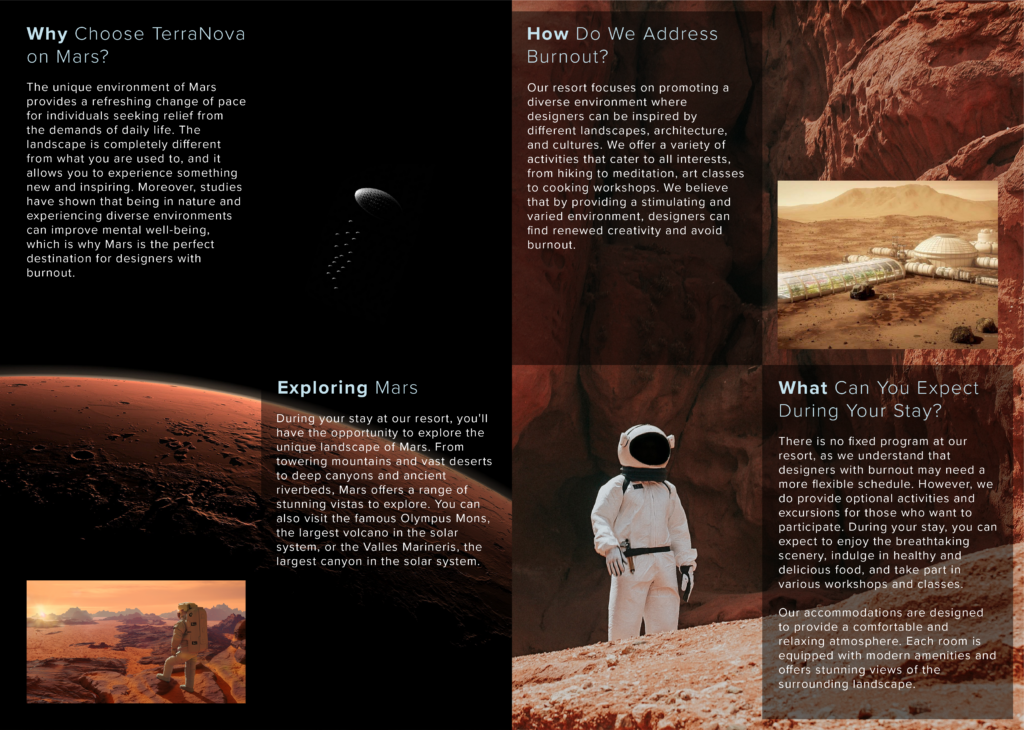TerraNova
- Research Project
- VR
- Blender
- Storytelling
- Unity
- Aerospace
How can space exploration and the exploration of Mars contribute to a greater appreciation for the Earth and a greater awareness among people of the necessity to treat our planet with care, using immersive media?
Abstract
In a time defined by climate change and environmental crises, TerraNova explores how space travel — particularly the colonization of Mars — can shift our perception of Earth. While the attraction of Mars grows, this project highlights a paradox: most people say they wouldn’t want to leave Earth because of its natural beauty, yet often take little action to protect it.
This research combines future speculation with immersive media to examine how virtual experiences can encourage environmental awareness. Through interviews, prototypes, and storytelling, the project investigates how VR and AR, supported by psychological frameworks like the overview effect, present bias, and the tragedy of the commons, can confront users with long-term consequences in a tangible, emotional way.
Set in the speculative world of New Canterbury (2070), TerraNova positions itself as a fictional Mars tourism company. The user is invited to “buy a ticket to Mars,” yet in doing so, must weigh what they are leaving behind. The project poses a critical question: Can we use the lens of space travel to reconnect with what we already have?
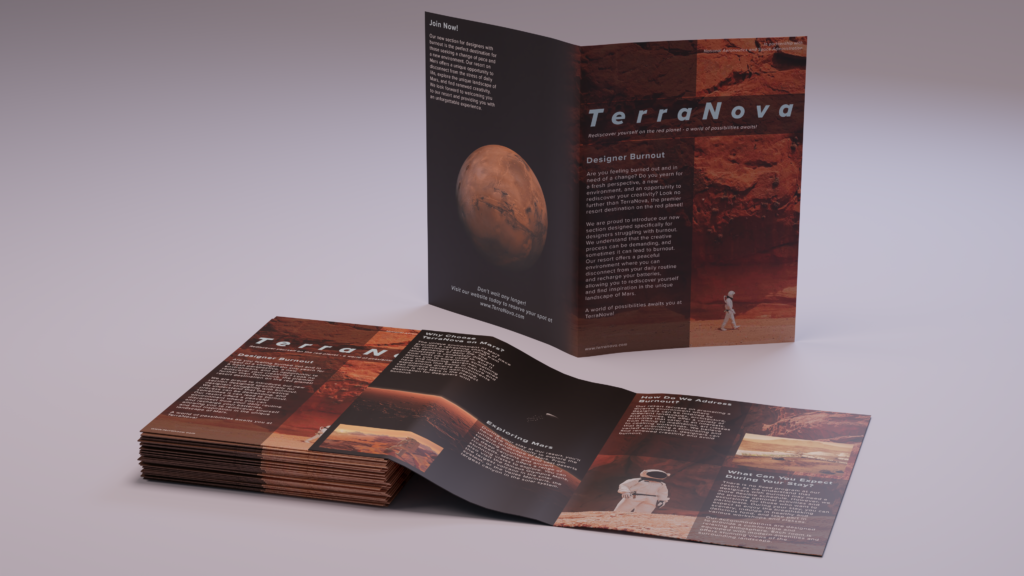
- Solo research project
- 20 weeks
You can read the full research in the document provided here: Exploratie (Dutch).
Conclusion
TerraNova serves as a conceptual prototype for how immersive storytelling and speculative design can reshape the way we perceive the climate crisis. While most information about the climate still relies on facts, graphs, and warnings, this project argues that those methods alone aren’t enough to trigger real behavioral change. Instead, TerraNova uses emotional immersion to let people feel the consequences of environmental destruction. By inviting users into a speculative future where Mars colonization is a reality, the project creates a sense of distance, but also a mirror to our current world. It becomes easier to recognize the value of Earth once we imagine what it would be like to leave it behind.
Through user interviews and research, a key insight emerged: people recognize the urgency of climate change, but struggle to act on it because its effects feel distant, abstract, or invisible in daily life. This psychological gap, known as present bias, causes people to prioritize short-term comfort over long-term survival. In TerraNova, that gap is confronted through experiential time-travel, simulating the long-term consequences of today’s behavior. Instead of reading about melting glaciers, users live in a world that has already shifted. This temporal contrast helps anchor the environmental crisis in a lived, embodied experience.
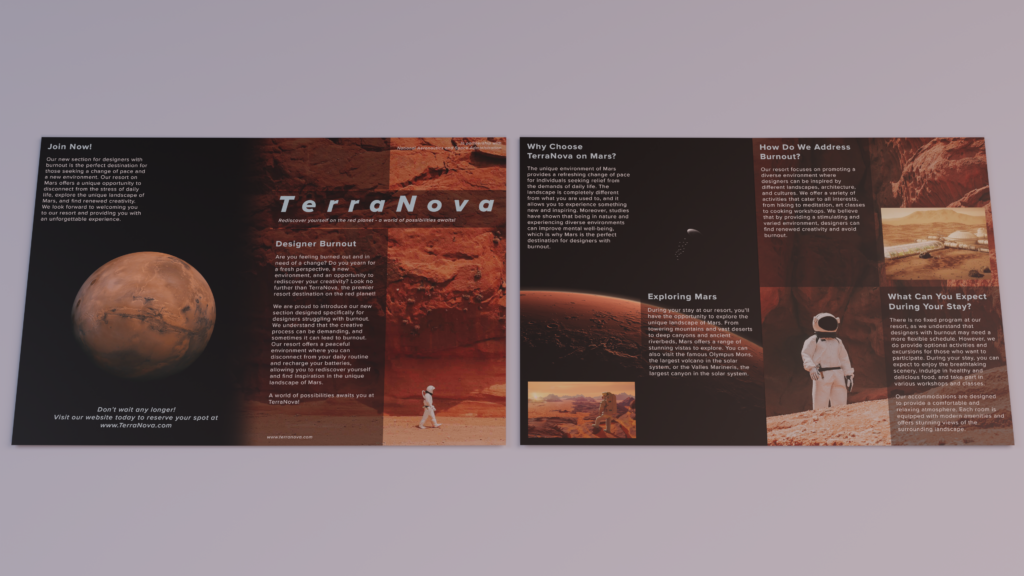
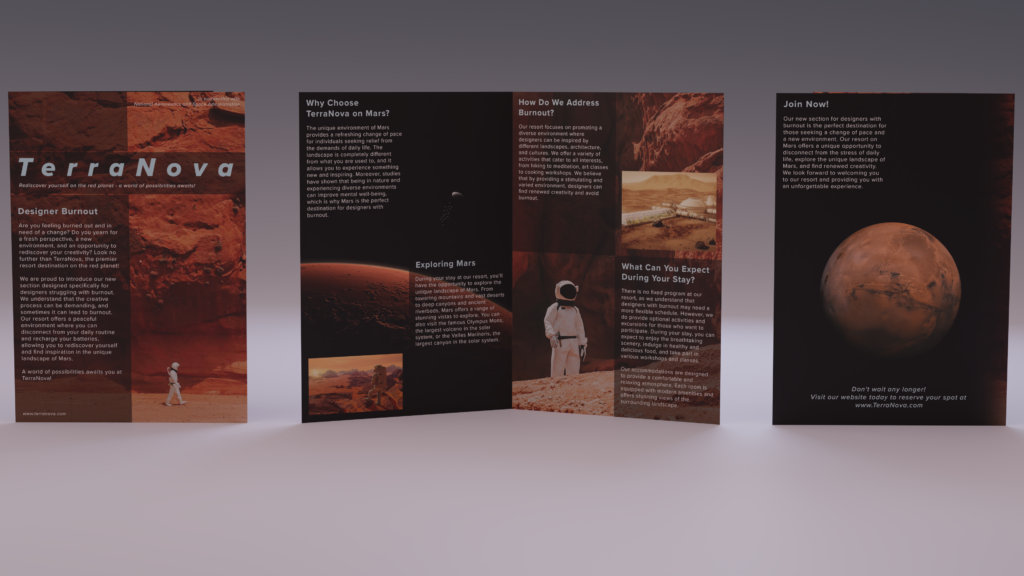

The project also utilizes the overview effect, a phenomenon experienced by astronauts who, upon seeing Earth from space, gain a new perspective on its fragility and unity. This emotional shift, from self to system, is difficult to achieve through traditional media. However, immersive technologies like VR and AR allow us to recreate this shift by manipulating scale, context, and presence. In TerraNova, Mars becomes not just a location, but a narrative device: it offers the user contrast, choice, and perspective. The fictional setting of New Canterbury is deliberately realistic, grounded in current space science and future forecasting, to maintain plausibility and relevance.
Ultimately, this project explores the role of imagination as a tool for change. By projecting ourselves into a future world, beautiful but desolate, advanced but lonely, we become emotionally invested in the path that leads us there. This affective connection is essential: without it, data remains inert. TerraNova doesn’t claim to offer the only answer, but it opens a space for further experimentation with immersive media, behavioral design, gamification, and speculative futures.
The project also highlights the importance of individual and collective responsibility. While many people feel disempowered, TerraNova shows that awareness can begin with small shifts in perception. By blending speculative storytelling with user agency, the experience empowers users to reframe their relationship with the planet, not through guilt, but through empathy and vision.
In conclusion, we don’t need to wait for Mars to become habitable before we act. The real frontier is not space, but mindset. And sometimes, imagining what we could lose is the most powerful step toward protecting what we already have.
